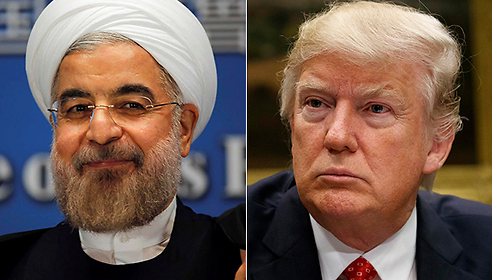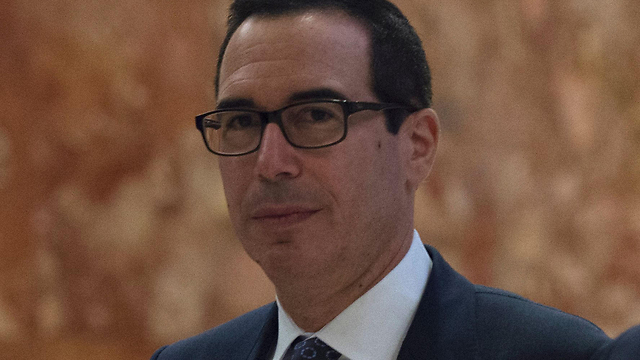Despite calling it ‘the worst deal ever,’ US Pres. Trump extends sanctions relief on Iran, in accordance to the ’15 nuclear deal made by his predecessor, Barack Obama; Trump nevertheless announces that Iran is violating ‘the spirit’ of the deal.
The United States on Thursday extended some sanctions relief for Iran under the 2015 nuclear deal, the State Department said, but no decision has been made on whether to preserve the deal itself.
At the same time, US President Donald Trump said that Iran is violating “the spirit” of the Iran nuclear deal and the US Treasury announced new cyber-related sanctions on about a dozen Iranian individuals or entities.
“We are not going to stand for what they are doing,” Trump told reporters on Air Force One. But he stopped short of saying whether he will refuse to recertify the agreement.

Trump has been extremely critical of nuclear deal reached with Iran and spearheaded by former president Barack Obama, going as far as to call in “the worst deal ever.”
State Department spokeswoman Heather Nauert said the administration approved waivers of some sanctions to “maintain some flexibility” as it develops a policy to address the range of Iranian behavior.
“Waiving some of those sanctions should not be seen as an indication of President Trump or his administration’s position on the (Iran nuclear deal—ed), nor is the waiver giving the Iranian regime a pass on its broad range of malign behavior,” she said at a news briefing.
Nauert did not specify which sanctions the administration had waived.
Earlier, sources said the United States will renew a waiver of the key, and most punitive, sanctions it imposed on Iran before the nuclear deal was ultimately struck.
Tucked into Section 1245 of the 2012 National Defense Authorization Act, Washington threatened to sanction the banks of Iran’s main oil customers if they did not significantly cut their purchases of Iranian crude.
Under the law, these sanctions can be waived for a maximum of 120 days, forcing the US government to revisit the issue every four months. Former president Obama’s administration, which negotiated the deal, did so in mid-January and Trump’s administration did so again on May 17.

Sources familiar with the matter stressed that the wider US policy toward Iran, and whether to preserve the deal that gave Tehran sanctions relief in exchange for curbing its nuclear program, has yet to be decided. Trump has criticized the deal, but some of his top advisers believe he should preserve it.
Even as the administration prepared to waive the oil-related sanctions, the Treasury Department announced new sanctions on 11 entities and individuals for “engaging in support of designated Iranian actors or malicious cyber-enabled activity,” including two entities based in Ukraine.
The Treasury alleged the firms and individuals were either engaging in activity that supported Iran’s ballistic missile program or its Quds Force, or engaging in cyber attacks against the US financial system.
The action freezes any assets they may hold in the United States and generally prohibits US individuals from doing business with them.
As reported by Ynetnews
